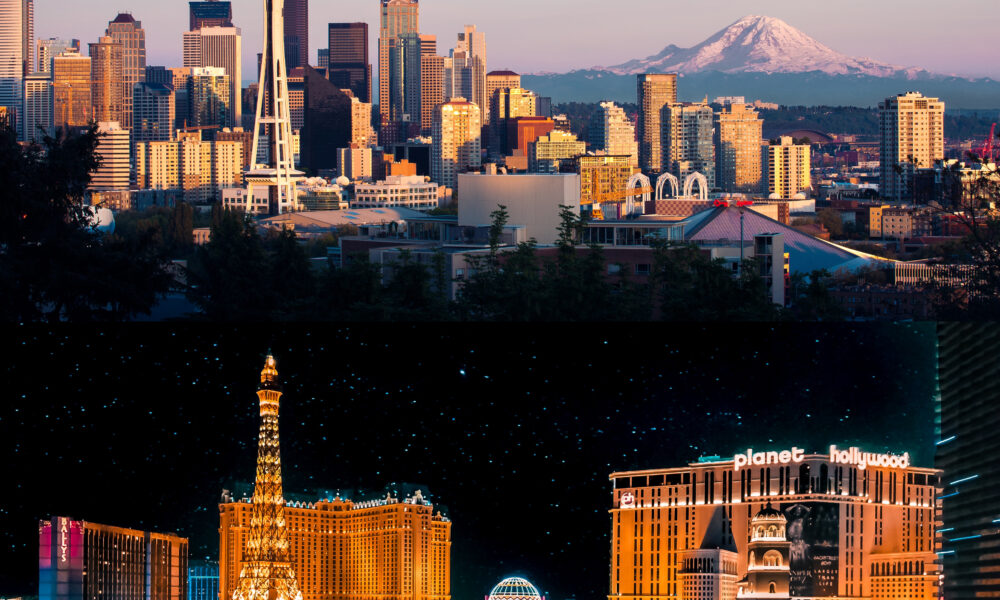In an appearance on the broadcast of a game between the New York Knicks and the Boston Celtics on Nov. 13, National Basketball Association (NBA) Commissioner Adam Silver was asked about the league’s plans for expansion. Silver mentioned the possibility of the league one day further expanding internationally, potentially adding teams in cities such as Montreal, Vancouver, and Mexico City. While this is welcome news for basketball fans in Montreal and Quebec at large, NBA expansion to any of the aforementioned cities is far from imminent.
The NBA’s timeline for expansion is made clear by the commissioner’s previous statements. With the league’s current media rights deal expiring at the end of the 2024-25 season, the league must first focus its efforts on negotiating a new TV rights package––an essential part of the league’s revenue stream. Once this issue is settled, the league has expressed interest in adding two more teams, bringing their total to 32. All indications suggest that the NBA will first expand to Las Vegas and Seattle. This has not been kept secret: Michael Fortier, the leading public figure in Montreal’s prospective ownership group, conceded as much earlier this year. From there, it is unclear how quickly the NBA will want to expand to 34 or 36 teams. Adding too many expansion teams in rapid succession may have adverse consequences on talent dilution, with spots on NBA rosters being awarded to players who would not have made the cut in a league with fewer teams.
The commissioner’s comments on the matter do not represent a binding commitment from the league to Montreal, Vancouver, or Mexico City. In fact, Silver’s comments are likely to drive up the bidding price for potential suitors. When the league formally begins its expansion process, having many markets vying for a small number of openings drives up the buy-in price. Interested markets can also serve as leverage for clubs in public financing negotiations. If one of the league’s existing teams is in need of a new arena and local government officials are unable or unwilling to pony up public funds, other markets can be seen as relocation threats. This has been the case in Major League Baseball, with negotiations for public funding of a new facility in Oakland failing to bear fruit, recently leading to a unanimous ownership vote approving the team’s relocation to Las Vegas.
Non-coincidentally, the three markets mentioned by the commissioner recently hosted contests as part of the league’s Canada Series and Global Games. The success of these recent events gave Silver the opportunity to talk up the league’s popularity on a global scale. In October, the Bell Centre hosted a preseason game between the Detroit Pistons and the Oklahoma City Thunder, featuring Canadians Shai Gilgeous-Alexander and Luguentz Dort, the latter of whom grew up in Montréal-Nord. The event was a success for the NBA, with a sold-out crowd of local hoops fans in attendance helping to cement Montreal’s status as a city that is ready and able to support an NBA team.
Postgame talk further pushed the agenda, with Gilgeous-Alexander, donning the Montreal Canadiens’ //Sainte-Flanelle//, stating his belief that the NBA should award a team to Montreal, a sentiment that the Raptors’ Chris Boucher echoed.
Montreal has the makings of a city that can support an NBA team. It is one of the biggest markets in the United States and Canada that does not currently have an NBA franchise. It is home to a suitable arena in the downtown core. There has also been publicly stated interest from a group of local business people in bringing an expansion team to Montreal. And yet, several hurdles must first be cleared before any significant progress is made in bringing a team to Montreal.
While hoops fans in Montreal may hope to one day have an NBA team to call their own, it likely will not happen for quite some time. However, if and when that time comes, one can only hope it will lead to seeing a bit less Toronto Raptors apparel being worn on the streets of Montreal.









